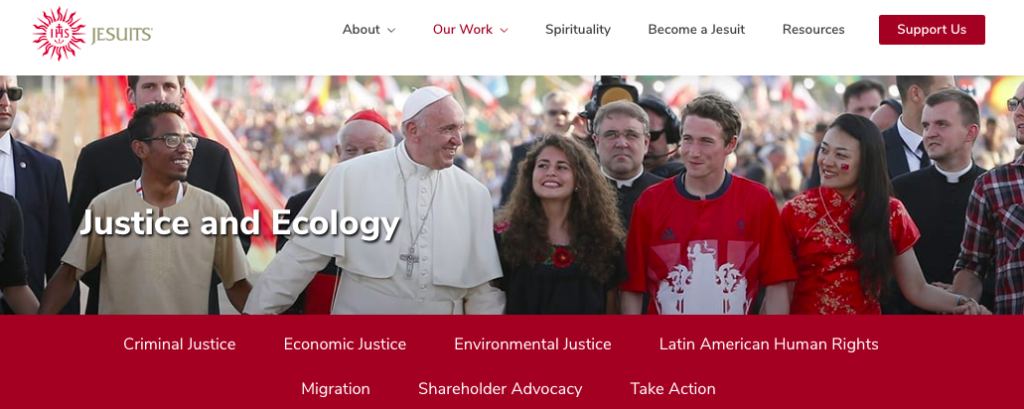
Next month, Georgetown will host the Justice in Jesuit Higher Education Conference. This is a regular gathering of Jesuit schools to contemplate the way that former Jesuit Superior General Peter-Hans-Kolvenbach, S.J. challenged American Jesuit colleges and universities nearly twenty years ago to integrate the “service of faith and the promotion of justice” into teaching, scholarship, and institutional life.
In his landmark address in 2000, Kolvenbach advised about how Jesuit colleges and universities could make justice an integral component of their work through formation of students and the research and teaching of faculty. The agenda he outlined still bears relevance today:
“As Jesuit higher education, we embrace new ways of learning and being formed in the pursuit of adult solidarity; new methods of researching and teaching in an academic community of dialogue; and a new university way of practicing faith-justice in society.
As we assume our Jesuit university characteristics in the new century, we do so with seriousness and hope. For this very mission has produced martyrs who prove that ‘an institution of higher learning and research can become an instrument of justice in the name of the Gospel.’ But implementing Decree 4 is not something a Jesuit university accomplishes once and for all. It is rather an ideal to keep taking up and working at, a cluster of characteristics to keep exploring and implementing, a conversion to keep praying for.”
As we approach next month’s virtual conference (you can sign up here), I want to highlight the work of the Jesuit’s Office of Justice and Ecology as a resource for students, staff, and faculty to consider in realizing the integration of faith and justice in our lives at Georgetown.
The Office of Justice and Ecology “brings the voice of Jesuit leadership to governments, international bodies, non-governmental organizations and corporations, advocating on behalf of marginalized communities” through policy analysis and advocacy efforts. The Jesuit’s current advocacy areas are criminal justice, economic justice, environmental justice, Latin American human rights, migration, and shareholder advocacy. Rooted in the tradition of Catholic social teaching and Ignatian spirituality, the Office of Justice and Ecology also works in collaborative partnership with faith-based and secular organizations and applies social analysis in its advocacy.

The diversity of social justice issues being addressed demonstrates how much the Jesuit commitment to justice reflects an abiding commitment to read the signs of the times and bring to bear an educational standard of, in Kolvenbach’s words, educating “the whole person of solidarity for the real world.” Some may wonder what legislative advocacy has to do with education. But Kolvenbach and the value of a Faith that Does Justice in the Spirit of Georgetown make clear that a commitment to justice is an indispensable part of who we are as a Jesuit institution. We are all called to share in this effort to “take conscious responsibility for being such a force for faith and justice” that seeks to transform the social reality of our time and place.
No professional discipline is immune from critical reflection and discerned action about how a commitment to justice applies in our learning and teaching. If you want to reflect more about this relationship between faith and justice, education and advocacy, I encourage you to attend next month’s virtual Justice in Jesuit Higher Education Conference.
